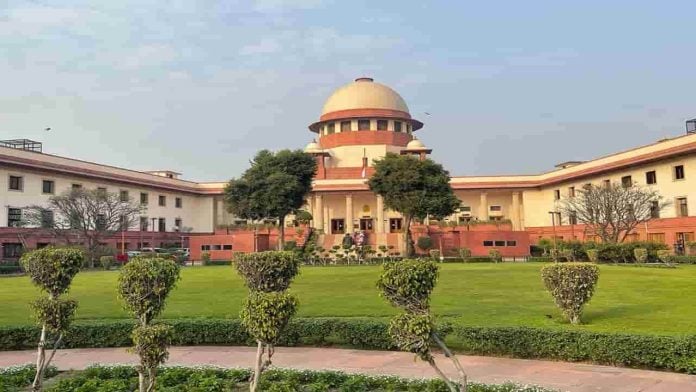The Supreme Court reserved its verdict on Monday on a petition filed by activist-turned-politician Akhil Gogoi, challenging the Gauhati High Court order that set aside the order of the trial court, which had discharged him in a case registered under the Unlawful Activities (Prevention) Act, 1967.
The High Court had remanded the discharge application for fresh consideration after finding fault with the trial court for not granting sufficient time to the NIA to contest the matter.
Representing Gogoi, Senior Advocate Huzefa Ahmadi contended told a division bench of Justices V. Ramasubramanian and Pankaj Mithal that sending the embattled legislator back to jail after being ‘at liberty’ for almost two years on the basis of flimsy evidence, some of which was from before 2009 would be a ‘travesty’ of justice.
Besides, the high court ought not to have made observations on the merits of the case while setting aside the discharge order and remanding it to the trial court, the senior counsel submitted. Therefore, he urged the top court to first, modify the high court’s order to the extent that it refused Gogoi’s ancillary prayer for bail and grant him protection from arrest, and second, direct that the trial court ought to consider the matter remanded to it, “without being truncated by the observations of the high court”. “This is a clear case of political vendetta,” Ahmadi further asserted in defence of the Assamese legislative assembly member.
These contentions were vehemently opposed by Additional Solicitor General Aishwarya Bhati who appeared for the National Investigation Agency. She argued that the opposite side was attempting to minimise the seriousness of the allegations against the accused. She said:“Maoist organisations are making the country bleed by a hundred cuts, if not a thousand cuts. They are waging a war against the government, especially the security agencies, which are our protectors. The rule of law itself is threatened by these organisations.”
Proximity and relevance of evidence relied on by prosecution“The first protected witness admitted, and this has been placed on record by the prosecution, that when he had told Gogoi about Maoist training in the state, the MLA categorically said that there was no need to indulge in such kind of activity in Assam then,” the senior counsel told the bench.
The incidents mentioned in the statement of the second protected witness, Ahmadi further argued, were from before 2009.“Incidents from 2009 are sought to be used in 2020. The trial judge also said that there has to be some proximate nexus.
Also, it must be noted that the Communist Party of India (Maoist) became a proscribed organisation in July 2009. He cannot be implicated for alleged participation in a political organisation which was not proscribed then,” Ahmadi argued.
Solicitor-General for India Tushar Mehta interjected, “Communist Party of India (Maoist) was never a political organisation. It may have been proscribed at any point in time, but it was never a political organisation. It was doing, to put it mildly, unlawful activities.”
Bhati also told the bench that it was not easy to get clinching evidence of the current involvement of operatives.
“The available statements show the link between the calculated efforts to subvert the government and the accused. It is not that after 2009, Akhil Gogoi turned into a public leader and a saint,” she said.
Nature of allegations under the UAPAThe charges levelled against Gogoi by the National Investigation Agency were called into question, with Ahmadi saying, inter alia, “If calling bandhs for one or two days threatened the economic security of the nation, then most of our political leaders should be charged under the UAPA.”
He also pointed out that the special NIA court found no evidence to hold him guilty personally or vicariously for specific incidents of vandalism during various agitations.However, the Additional Solicitor-General protested, “The charges under the UAPA are not with regard to bandhs, peaceful dharnas, or shutdowns.”
She added, “This is a far graver charge of supporting terrorist organisations waging a war against an elected government and using various illegal methods to achieve its ends.”


